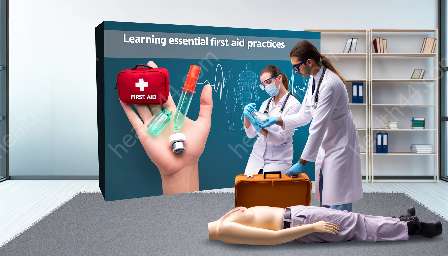Accidental poisoning and drug overdoses can happen to anyone at any time. Being prepared to respond to these emergencies is essential for everyone, from parents and caregivers to medical professionals. This guide provides comprehensive information on poisoning and overdose management, encompassing first aid techniques, health education, and medical training.
Understanding Poisoning and Overdose
Poisoning is the result of exposure to a substance that causes harm by altering normal body functions. Overdose, on the other hand, occurs when an individual consumes a larger amount of a substance, such as medication or recreational drugs, than the body can handle. Both poisoning and overdose situations require immediate attention and appropriate management to minimize harm and prevent potential fatalities.
Recognizing the Signs and Symptoms
Recognizing the signs and symptoms of poisoning and overdose is crucial for prompt intervention. Common indicators include:
- Altered mental status: Confusion, lethargy, or unconsciousness.
- Respiratory distress: Shallow or difficulty breathing.
- Altered skin color: Pale, bluish, or jaundiced skin.
- Nausea and vomiting.
- Seizures in severe cases.
First Aid Techniques
Immediate first aid is paramount in poisoning and overdose management. The following steps can be taken:
- Assess the situation: Ensure your safety first, then assess the individual's condition and gather information on the suspected substance.
- Call for help: Contact emergency services or a poison control center for guidance.
- Provide reassurance: Keep the person calm and reassure them help is on the way.
- Follow specific protocols: Some substances may require specific interventions, such as administering activated charcoal or naloxone for opioid overdoses.
- Perform CPR if necessary: If the person stops breathing or their breathing is ineffective, initiate cardiopulmonary resuscitation (CPR).
- Stay with the person: Maintain constant observation until professional help arrives.
Health Education and Medical Training
Health education and medical training play vital roles in preparing individuals to manage poisoning and overdose incidents effectively. Key elements include:
- Public awareness campaigns: Educating the public on common poisons and the risks associated with drug misuse.
- Training for first responders: Equipping individuals, including healthcare professionals and laypersons, with the knowledge and skills to respond to poisoning and overdose emergencies.
- Community outreach programs: Engaging with communities to promote safe medication storage and disposal practices.
- Continuing education for healthcare professionals: Keeping healthcare providers updated on the latest advancements in toxicology and overdose management.
Conclusion
Effective poisoning and overdose management requires awareness, preparedness, and the ability to respond swiftly and appropriately. By integrating first aid techniques, health education, and medical training, individuals and communities can work together to reduce the impact of poisoning and overdose incidents. Empower yourself with the knowledge and skills needed to make a difference in these critical situations.



